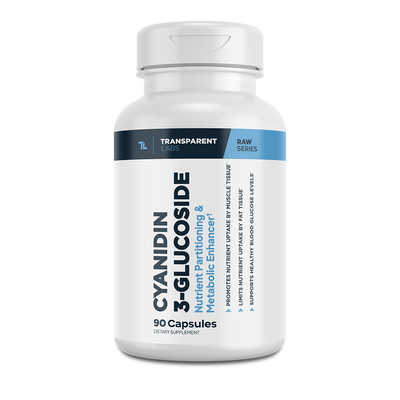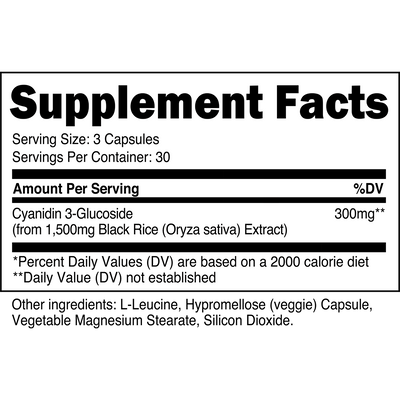Is it Safe to Take Melatonin Supplements Every Night?

Is it Safe to Take Melatonin Supplements Every Night?
What if we told you that sleep disorders affect as many as 50 to 70 million Americans of all ages [1]?
With so many people struggling with circadian rhythm sleep disorders and having trouble falling asleep or staying asleep throughout the night, it’s no wonder so many people are searching for a safe and reliable solution.
That’s where sleep aids come into play.
Melatonin supplements are a common non-prescription option for individuals experiencing sleep disturbances.
In this article we will uncover what melatonin is, the purpose and benefits of melatonin supplements to combat sleep disorders, and if it is something you should consider taking every night. Combining research and professional medical advice, you’ll learn everything you need to know about melatonin so you can sleep blissfully every night.
What Is Melatonin?
Melatonin is a hormone that is made naturally in our brains by the pineal gland in response to darkness. Although this doesn’t put you to sleep, the rise in melatonin levels can help regulate our circadian rhythm by syncing our sleep-wake cycle [2].
Once the sun goes down, melatonin gives us that tired, relaxing feeling that helps us fall into a deep, quality cycle of sleep.
Melatonin is a beneficial hormone that works in our favour most of the time. Unfortunately, many factors can influence our sleep cycle that no amount of natural melatonin production can make up for. For this reason, many people opt for supplementation to help.
Melatonin Supplements for Sleep Disorders
If you’re someone who has been experiencing sleep disorders or has persistent trouble falling asleep, you know just how frustrating and tiresome it can be to get a good night’s rest.
Let’s take a closer look at the effect of sleep disorders and how melatonin supplements can benefit us.
What Are Sleep Disorders?
Sleep disorders are a common problem involving sleep quality, timing, and duration.
Some common causes of sleep disorders include:
-
Physical pain or discomfort caused by health conditions such as rheumatoid arthritis or ulcers
-
Psychological symptoms such as anxiety or depression disorders
-
Medication (i.e. antidepressants, corticosteroids, etc.)
-
Lifestyle factors (i.e. high levels of stress, working night shifts, etc.)
-
Genetic factors
Sleep disorders can take all different forms. In fact, there are more than 80 types of sleep disorders that can affect our sleep-wake cycle. The majority of these sleep disorders can be categorized into primary, secondary, and circadian rhythm sleep disorders.
-
Primary sleep disorders
Primary sleep disorders refer to any type of sleep disorder that is not caused by another medical or psychological condition. Examples of primary sleep disorders include insomnia disorder, hypersomnolence disorder, and narcolepsy [3].
-
Secondary sleep disorders
Secondary sleep disorders refer to any sleep disorder directly resulting from another medical ailment such as anxiety, arthritis, asthma, depression, stroke, and so on [4].
-
Circadian Rhythm Sleep Disorders
Circadian rhythm sleep disorders, also known as sleep-wake cycle disorders are a distinct class of sleep disorders that are characterized by a mismatch between the time you want to fall asleep, and your ability to actually fall asleep. In other words, Circadian sleep disorders throw our sleep-wake cycle out of since with the environment making it difficult to fall asleep during the night [5].
Common types of circadian sleep disorders include:
-
Delayed sleep-wake phase syndrome – this occurs when your sleep pattern is delayed for 2+ hours causing you to fall asleep later and wake up earlier than usual
-
REM sleep behavior disorder – this refers to a type of sleep disorder that causes you to physically act out dreams with vocal sounds and body movements during your REM sleep cycle
-
Irregular sleep-wake rhythm disorder – this type of sleep disorder is characterized by having an odd or irregular sleep schedule
Among the different versions of sleep disturbances we might experience, melatonin supplements are shown to have the greatest effect in treating circadian rhythm sleep disorders [6].
How Melatonin Supplements Work
Melatonin supplements are effective sleep aids that can help us fall asleep faster and improve our sleep quality and duration throughout the night.
Similar to our natural sleep hormone, melatonin supplements act on receptors in our body to encourage sleep. With sleep disorders, taking melatonin can help signal to the brain that it's time for bed, putting us in a state of “quiet wakefulness” to help promote sleep.
If you’re considering taking melatonin, it’s important to recognize how to create optimal conditions for melatonin supplements to produce the greatest effect on our sleep cycle. Johns Hopkins sleep expert Dr. Luis F. Buenaver recommends keeping the lights low before bedtime by avoiding computer, smartphone, or tablet use in the bedroom, dimming or turning lights off in the bedroom, and using blackout curtains.
How Much Melatonin Is Considered Safe?
Generally speaking, melatonin supplements are considered safe for most people and will not cause any sort of life-threatening complications when taken in high doses for long periods of time.
However, taking too much melatonin can contribute to a wide range of common side effects such as [7]:
-
Dizziness
-
Drowsiness
-
Daytime sleepiness
-
Mild anxiety
-
Insomnia
-
Abdominal cramps
-
Irritability
-
Reduced alertness
-
Low blood pressure
-
Confusion or disorientation
Regarding sleep quality, how much melatonin you need may vary from one person to the next. Finding the sweet spot with taking enough melatonin to get the beneficial effects of supplementation without going overboard is essential to addressing sleep problems.
According to the National Sleep Foundation, doses ranging from 0.5mg to 5mg per night are shown to be safe and effective for adults over the age of 18 as well as older adults between the ages of 55-77. Of course, the more melatonin you take, the more daytime drowsiness you may experience. For this reason, it’s recommended to start at the lowest dose of melatonin to improve circadian rhythm without prolonging daytime drowsiness.
Is Melatonin Addictive?
Although melatonin plays a role in the central nervous system to help influence our sleep-wake cycles, it's unlike other sleep medications in that it's not addictive. Even in cases where you take too much melatonin, it is not shown to cause any sort of withdrawal or dependency symptoms.
Should I Be Taking Melatonin Every Night?
While generally safe to take every night, most healthcare professionals recommend taking melatonin on a short-term basis as needed to assist with circadian rhythm sleep disorders or persistent sleep difficulties.
Continue for two months, then stop to find out how your sleeping patterns change. If these sleep problems persist, consider speaking to your doctor about other sleep aids or medications as alternative options.
Other helpful tips that offer similar benefits to taking melatonin for sleep include yoga, meditation, magnesium supplements, and non-caffeinated herbal teas.
When to Avoid Taking Melatonin

You should not take melatonin if you are planning to drive or use heavy machinery within 5 or so hours, are pregnant or breastfeeding, or are at risk of seizures. Due to some common drug interactions, you should also avoid taking melatonin if you’re taking certain anticoagulants, contraceptive drugs, diabetes medications, certain high blood pressure medications, or immunosuppressant medications [8].








